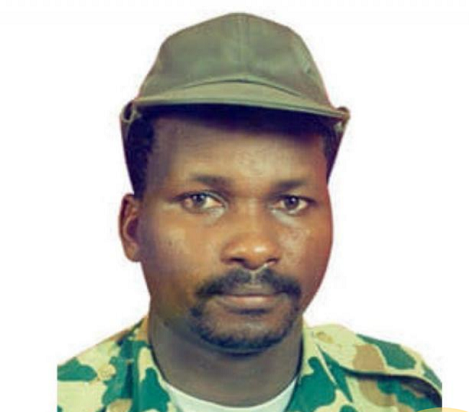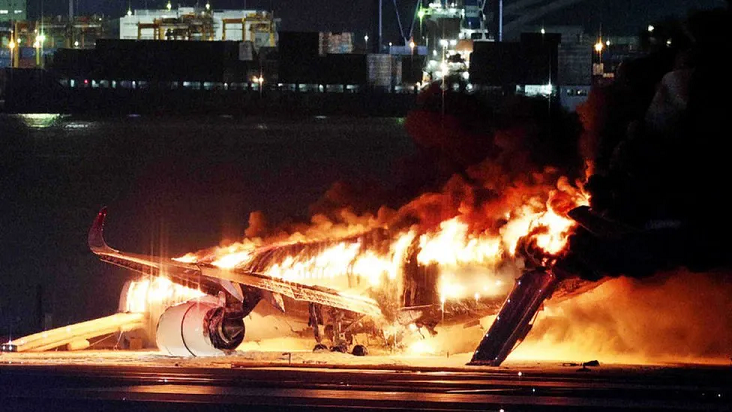Lt. Col Ahmed Kashilingi
Lt. Col Ahmed Kashilingi who passed away on Thursday morning, is listed in The Uganda People’s Defence Forces Act 2005 as one of the 15 permanent members of the Defence Forces Council. These were the senior members of the NRA on January 26, 1986.
Other than Kashilingi, the other members include Maj. Gen. Mugisha Muntu, Maj. Gen. Joram Mugume, Maj. Gen. Ivan Koreta, Brig. Jim Katugugu Muhwezi, Brig.
Steven Kashaka, Col. Kahinda Otafiire, Col. Pecos Kutesa, Col Julius Chihandae, Col Peter Kerimu, Lt. Col. Fred Mwesigye, Lt. Col. Andrew Lutaaya, Lt. Col. Gyagenda Kibirango, Lt Col. Samson Mande and Lt. Col. Amin Izaruk.
The Act also lists; Gen Yoweri Kaguta Museveni, Lt. Gen Elly Tumwine, Lt Gen. Salim Saleh Akandwanaho, Lt. Gen. David Tinyefunza, Brig. Eriya Kategeya and Brig. Matayo Kyaligonza as permanent members of the High Command.
The functions of the Defence Forces Council on which the above people are permanent members include; advising the president on all matters connected with the control and administration of the Defence Forces; giving professional advice on military defence policy generally; and performing such duties as may be conferred upon it by law.
On the other hand, the High Command is charged with; advising the President in emergency situations and on matters relating to national security or deployment of the Defence Forces, advising the president when Uganda is at war; performing such duties as may be conferred upon it by law and also perform such other functions as the president may direct.
The law says the two organs must regularly meet but if anything; the sitting shall not be less than three times a year.
Reading Kashilingi’s name in the UPDF Act speaks to one thing; the recognition of his stellar contribution to the war that ushered the National Resistance Movement to power.
The days of glory for Lt Col Kashilingi, who is listed as one of the most heroic commanders of the liberation struggle whose military number is RO 040, were only brief after NRM took power and the recognition of his contribution was forgotten even before the ink in which it was written had dried.
He was suspected of plotting against the very government he was part of, and fled to Zaire (DR Congo) just as he was about to be arrested. Later he was arrested in his exile and the army insisted he was captured in action while fighting in a rebel group in the Rwenzori mountain ranges, and charged with treason.
Kashilingi was pronounced dead yesterday after a short illness, according to one of his brothers Tanazio Biryabarema. His death reignites a reflection on the not-so-colourful a life he has lived, compared to fellow combatants who captured Kampala and with it the spoils of power now for 37 years and counting.
As a highly skilled military commando who had obtained training in Uganda, Libya and Iraq, Kashilingi was one of the most highly trained initial commanders of the NRA when it decided to militarily challenge the Obote II government in 1981.
He had been part of the Uganda military since 1969. Little wonder that when he joined Yoweri Museveni for what was called the protracted people’s war, he was right away made a deputy commander under now Maj. Gen Matayo Kyaligonza.
Their unit which used to carry out urban warfare was meant to deflect attention away from the main NRA operation theatre in the Luweero areas.
One of the heroic episodes of Kashilingi that will take long to be forgotten was when he saved Museveni from being killed or captured by the UNLA forces. On that day of February 2, 1984, an NRA force had gone to attack Masindi Army Barracks.
At their base, it was Kashilingi who was in charge of protecting Museveni when they came under surprise attack. Using not more than 70 soldiers, Kashilingi beat off a more a sophisticated UNLA force and enabled Museveni escape but not without losing several of his bodyguards including his ADC.
When the NRA war was in its final push, Kashilingi was the commander of the western axis that cut off Katonga bridge on the Kampala-Masaka highway and with it the west from the rest of the country. It was this war that proved decisive in the final push by the NRA to Kampala.
Kashilingi’s brigade was then deployed to cut off Entebbe Airport and was one of the forces who swept through Kampala on the 25th January 1986.
After establishing government, Kashilingi was appointed as the Director of Records of the Army.
And like most NRA commanders such as Salim Saleh, Julius Chihandae, David Tinyefuza, he got himself a house along Acacia Avenue. According to an interview with Hussein Kashilingi a lawyer and Kashilingi’s son, the rivalry that was in the bush was carried on when they took over government. But unlike when they were in the bush, this time, Museveni was preoccupied with other things and had no time to solve problems of his commanders.
“I think those people had problems they came with from the bush,” his son lawyer Kashilingi told Daily Monitor in a 2014. “And even after capturing power, they continued having those problems. They were always caucusing. There was a group which was allied to Gen Salim Saleh and there were those I think who were allied to Gen Elly Tumwine and they were very few as he (Tumwine) was unpopular. I don’t know why. Gen Saleh and other officers like Col Amanya Mushega, Gen Ivan Koreta, Col Chihandae, Gen Matayo Kyaligonza and others would visit us. But on weekends, there were always some kind of shootout in Kololo, with these soldiers fighting among themselves. The group of Gen Tumwine would come to attack those allied to Gen Saleh. I have never understood it. People would not die but you would hear bullets at night. Power would go off and you would hear people exchange gunfire.”
Kashilingi gives this rivalry as the reason why Museveni chose to deploy most of his former comrades in 1989 in the civil service. It was around the same time that he sacked his brother Saleh as commander of the UPDF and replaced him with now opposition honcho Maj. Gen. Mugisha Muntu.
But before the order to deploy Kashilingi and colleagues in the public service, there was a fire at the Republican House; now Bulange in Mengo which was the Army headquarters.
The fire started from the records office whose head was Kashilingi. It was suspected that Kashilingi was trying to conceal evidence which was suggesting that there was ghost soldiers whose resources he was using to form a rebel Movement the National Army for Liberation of Uganda (NALU).
There is conflicting information on who ordered the arrest of Kashilingi. His son says the order came from David Tinyefuza while in an article published by New Vision in 2021, the order reportedly came from President Museveni himself before he left for Djibouti.
“I think there was a plan to arrest my father, torture him or kill him, but he was advised by his close friend, who I don’t want to mention, to run away a bit and wait for the President to come back and see how to resolve the differences,” Kashilingi, the son said.
“It was clear that it was only the President who could protect him because Gen Saleh who was his friend was no longer in command…He then called a very close friend of his – the one I said I will not mention – who told him that those soldiers were going to kill him and he advised him to run away. He also told him he was not safe anywhere in the country until the President comes back.”
Kashilingi was able to escape from his home and disappeared. When David Tinyefunza who was the state minister of security heard of the escape, he sent a radio message to all army units to heutralise Kashilingi when sighted.
Eventually he ended up in Zaire now the Democratic Republic of Congo where he stayed for close two years until he was allegedly kidnapped and returned to Kampala.
Hussein Kashilingi says he only saw his father again in prison in 1992. “At the time of my secondary school, my father was being held incommunicado in Makindye Military police barracks. Whereas we knew he was back, we were not allowed access to him between 1991 and 1992. But people used to come home and tell us he was fine. A few months later, he was charged with treason and the story was that he had been caught in the Rwenzori Mountains fighting to overthrow the government. I keep reading these stories and I don’t know what to say. Every time I hear that so and so wants to overthrow the government, I wonder whether it’s the same story like my father’s,” Hussein said in the interview. He also confirms a story that while his father was at Makindye he was held in a dungeon and on handcuffs for more than one year. Eventually he was tried for treason and concealment of treason, but was acquitted for lack of sufficient evidence in 1995.
The younger Kashilingi wrote: “My father has never recovered and doesn’t want to talk about it. He was acquitted and came home in Entebbe. I was in Senior Four vacation… My father started this revolution with them. But he is one of those senior commanders as of 1986 who never received any recognition and I keep asking, why?”
Kashiling gave a rare interview to Daily Monitor which was published on Saturday, February 08, 2014, in which he rubbished the medals given out on Heroes Day thus: “All street women are carrying medals whose significance they don’t even know. These medals have lost value because they are being abused. I will not fight for those mikebe (tins).A man like Gen Elly Tumwine, whenever he is reading names of those to get the medals, his chest if full of medals more than Amin owned. You wonder who gave him those medals. He no longer has space on his chest in case he was to get another medal.”
Kashilingi went to Kigezi College Butobere for his secondary education. Nothing is known about his higher education if any. He joined the military in 1969 where he got training in signaling and para trooping. In 1970 he went to England where he underwent a course in records management, trained as a commando in Libya in 1972 and in 1973 went to Iraq for a one-year training still as a commando.
Kashilingi will be buried today in Rubabo Rukungiri district.
-URN





